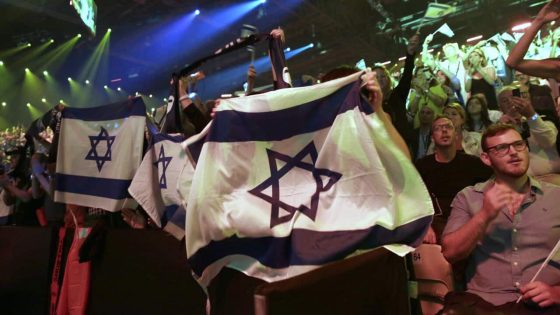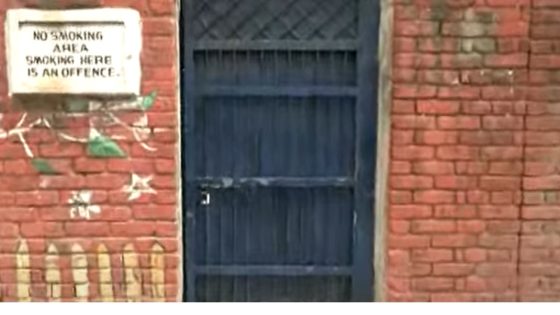Key Points
- Eurovision is an annual song competition featuring artists from mainly European countries.
- Israel first became eligible for Eurovision in 1957 and made its debut in 1973. It has since won four times.
- Protesters are calling for Israel to be excluded from the 2024 competition due to its military campaign in Gaza.
More than 10,000 protesters this week to protest Israel’s participation in the 86th annual Eurovision Song Contest.
Organised by the European Broadcasting Union (EBU), Eurovision is an international competition where musicians from dozens of countries perform an original song and competing countries cast votes to determine a winner.
The number of countries competing in the contest has grown over time — but while most participants are typically from Europe, several nations from geographically outside the boundaries of the continent have also competed, including Australia, Morocco and Israel.
This year, a growing chorus of voices has called for Israel to be excluded from the competition over its military campaign in Gaza, which has killed at least 34,900 people and wounded more than 78,500 others since 7 October, according to the health ministry in Gaza.
Israel has bombarded Gaza since Hamas’ 7 October attack in which more than 1,100 people were killed and over 200 hostages taken, according to Israeli authorities.
But how did the Middle Eastern nation come to be included in Europe’s biggest annual song contest in the first place?
Why is Israel included in the competition?
The EBU is an alliance of 113 public media organisations that primarily reside within the European Broadcasting Area: an umbrella of coverage that spans most countries between Iceland, Egypt, Ireland and Azerbaijan. Members are given access to a range of exchangeable content such as exclusive sports rights, news, music and children’s programs.
Israel first became eligible for the Eurovision Song Contest after becoming part of the EBU in 1957, and it made its Eurovision debut in 1973. At the time, it was the first non-European country granted permission to participate in the event.
Since then, Israel has won the contest four times: in 1978, 1979 — when Eurovision was held in Jerusalem — 1998 and 2018. The country also has the record for most participations and most wins in the contest without ever coming last.
Until 2017, Israel was granted access to Eurovision via its public broadcaster, the Israel Broadcasting Authority (IBA), which was a member of the EBU.
From 2018 onwards, the Israeli Public Broadcasting Corporation (KAN) has taken charge of the country’s entries after succeeding the IBA as national broadcaster and representing Israel’s membership in the EBU.
What is Eurovision’s stance?
Eurovision has resisted mounting calls to exclude Israel from the competition, explaining that its governing bodies reviewed the participants for the 2024 contest and agreed KAN met all the competition rules, meaning it would be allowed to participate “as it has for the previous 50 years”.
“As a non-political organization, the EBU’s role is to support public service broadcasters throughout Europe and the Middle East,” Eurovision said, in a statement published to the organisation’s website.
The number of countries competing in Eurovision has grown over time. Source: SBS News / Rolf Klatt for SBS
Organisers also rejected accusations of double standards after disqualifying Russia from the contest in 2022 following its full-scale invasion of Ukraine — claiming that was due to breaches in EBU membership obligations and values.
“The Israel public service broadcaster has been a member of the EBU for over 60 years,” Eurovision said.
“The Russian public service broadcasters had their EBU membership suspended in 2022 due to consistent breaches of membership obligations and the violation of public service media values.”
What has been the response to the protests?
Over 10,000 protesters gathered in Malmö’s main square and marched through the city’s central pedestrian shopping precinct on Thursday as the city hosted the competition’s second semi-final, in which Israel’s entrant Eden Golan performed.
Golan was booed during a rehearsal of her song Hurricane, but ultimately qualified for Saturday’s Grand Final show alongside nine others.
Signs and banners bearing the words “Liberate Palestine”, “EUR legitimises genocide” and “colonialism cannot be washed in pink” could be seen in the crowd. Meanwhile, in a different neighbourhood, about 100 counter-protesters gathered under police protection to express their support for Israel.
Golan said she was “proud to represent my country” and that “nothing will deter” her.
In a video message posted on social media, Israeli Prime Minister Benjamin Netanyahu wished Golan good luck and said she had “already won” after “successfully contending” what he described as an “ugly wave of antisemitism” in Sweden.
Eurovision, however, said it supported people’s right to peacefully protest.
“The EBU is a firm advocate for freedom of speech and the right for people to express their deeply held views and opinions,” the organisation said on its website.
“We understand that people may wish to make their voices heard and support the right of those who wish to demonstrate peacefully.”


